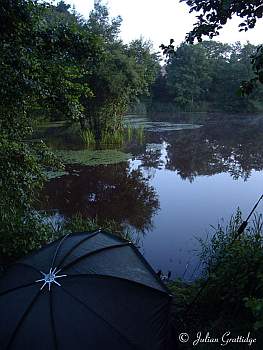It’s normally at this time of year that many anglers start to think about the challenges of pastures new for the year ahead. With many club waters getting quite crowded over recent years and, unfortunately, suffering from a few idiots, a question I’m getting asked more and more is how anglers can get into syndicates.
Once a syndicate has been found, it can often be a struggle to make the right impression in order to maximise the chances of getting in. Therefore, in this piece I thought I’d highlight a few tips for those looking to get into a syndicate.
First of all, it helps to know exactly what a syndicate is. In essence, it’s usually a water fished by a small group of likeminded anglers specially selected by the syndicate leader. The water will often have excellent fishing on offer for specimen carp and/or coarse species. Usually, there will be a small number of members, which guarantees each member a good chance of having a good selection of swims whenever they fish, and in many cases can mean they will have the water to themselves. As there are only a small number of members, each member generally pays more than they would on a club water, effectively paying the extra money to fish for an above average quality of stock, and the ability to do so in relaxed and tranquil surroundings.
 Rarely do good syndicates need to tout for your membership. By their very nature, there are almost always more people wanting to get in than there are places available. As such, most syndicates will have a waiting list – but be mindful that getting onto it does not necessarily mean that you then just have to wait in turn for your place to come up!
Rarely do good syndicates need to tout for your membership. By their very nature, there are almost always more people wanting to get in than there are places available. As such, most syndicates will have a waiting list – but be mindful that getting onto it does not necessarily mean that you then just have to wait in turn for your place to come up!
If you really want to make sure you have the best chance of getting into a syndicate, you have to put yourself in the syndicate leader’s shoes. I run four different carp syndicates and, over the years, have seen just about every type of approach possible – from the downright stupid to the very carefully considered. All I can say is that in terms of getting yourself ahead of the rest, it’s the first contact that makes all the difference. Never before has there been a situation where first impressions matter more!
To bust a few myths; for the majority of syndicate leaders it does not matter how many big fish you’ve caught or how many waters you’ve ‘taken apart’. Likewise it does not matter which bait company you’re sponsored by or how special you think you are. To be honest, an approach based on any of the above is likely to see you fail at the first hurdle – it certainly would with me, anyway! You see, for most syndicate leaders it’s not about how good you are – it’s about how you will fit in with the rest of the members and how you will respect their fishing and perhaps more importantly, how you will respect the stock and the surroundings.
You have to remember that these waters often contain some real jewels, and are often stunning in terms or the surroundings, so it’s always a risk when a syndicate takes on a new member. In my case, I need to know I can trust the person implicitly on the water no matter what happens. Because of this, many syndicates fill places from within, i.e. when a place becomes available it is filled by a friend of an existing member, in order that the person’s suitability can be vouched for by an existing member – a member who knows that his or her own position may be at risk should they not be suitable. This is not to say it’s impossible to get in if you don’t know anybody already on the syndicate – you just have to work that bit harder!
First things first, don’t rush an approach. Once you have found out who you need to contact, think about how you are going to do it. My advice would always be to write or send an email in the first instance if possible. Syndicate leaders are often busy people and, if phoning, there’s always a chance you could catch them at a bad time and there’s nothing worse than trying to progress a conversation with a person who really needs to be doing something else. If all I had was a phone number, in the first instance I would probably make a quick polite call to ask if they had an email or postal address so you could write to them so as not to take up their valuable time on the phone – it always works well for me.
Make sure you read part two, as we cover what you need to include in your initial contact and how to go about following it up.
Julian Grattidge
February 2013








